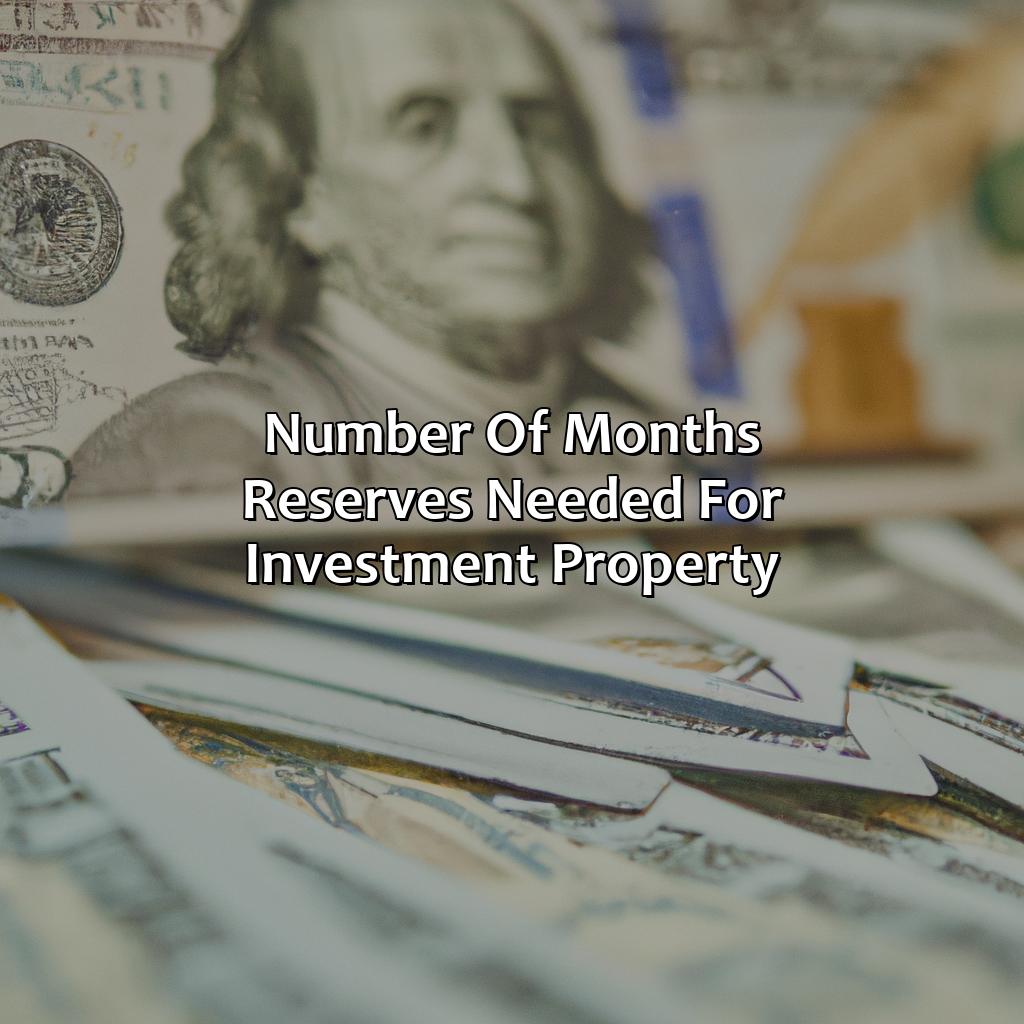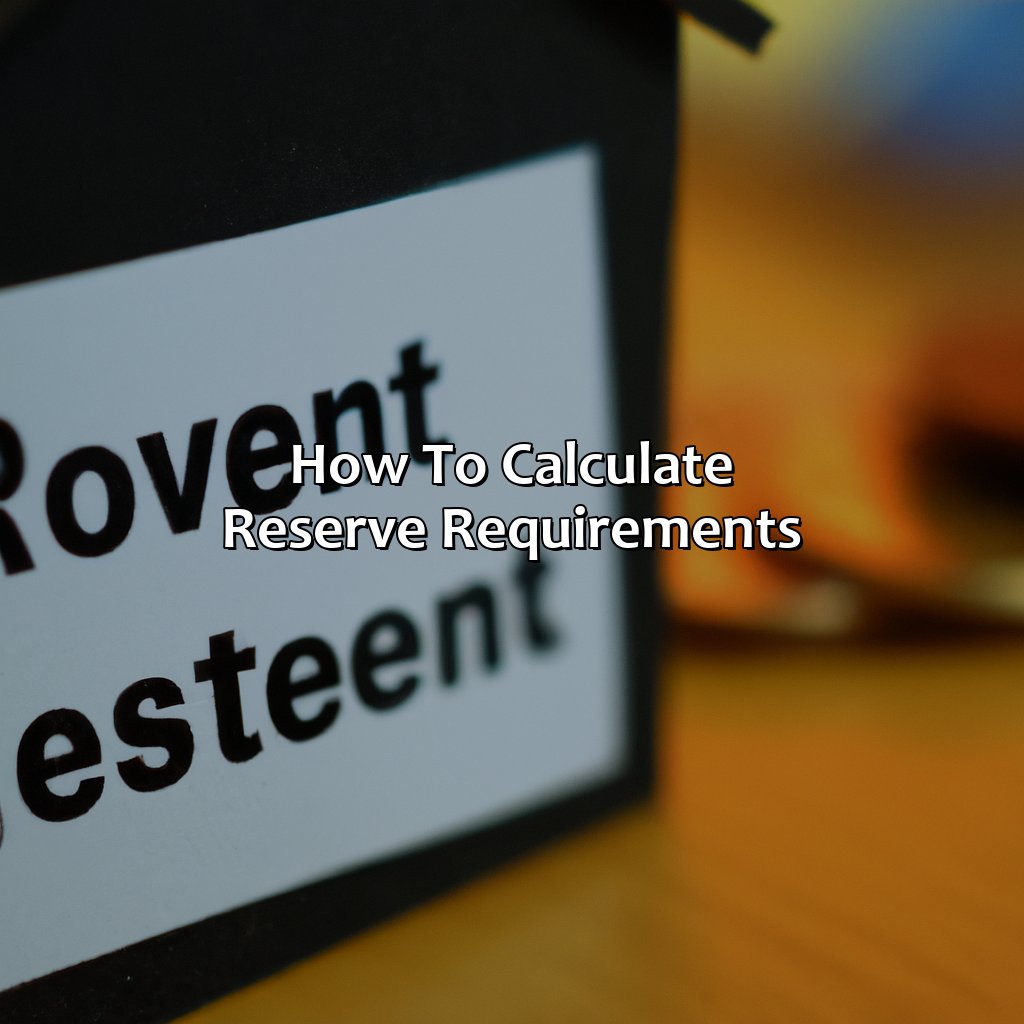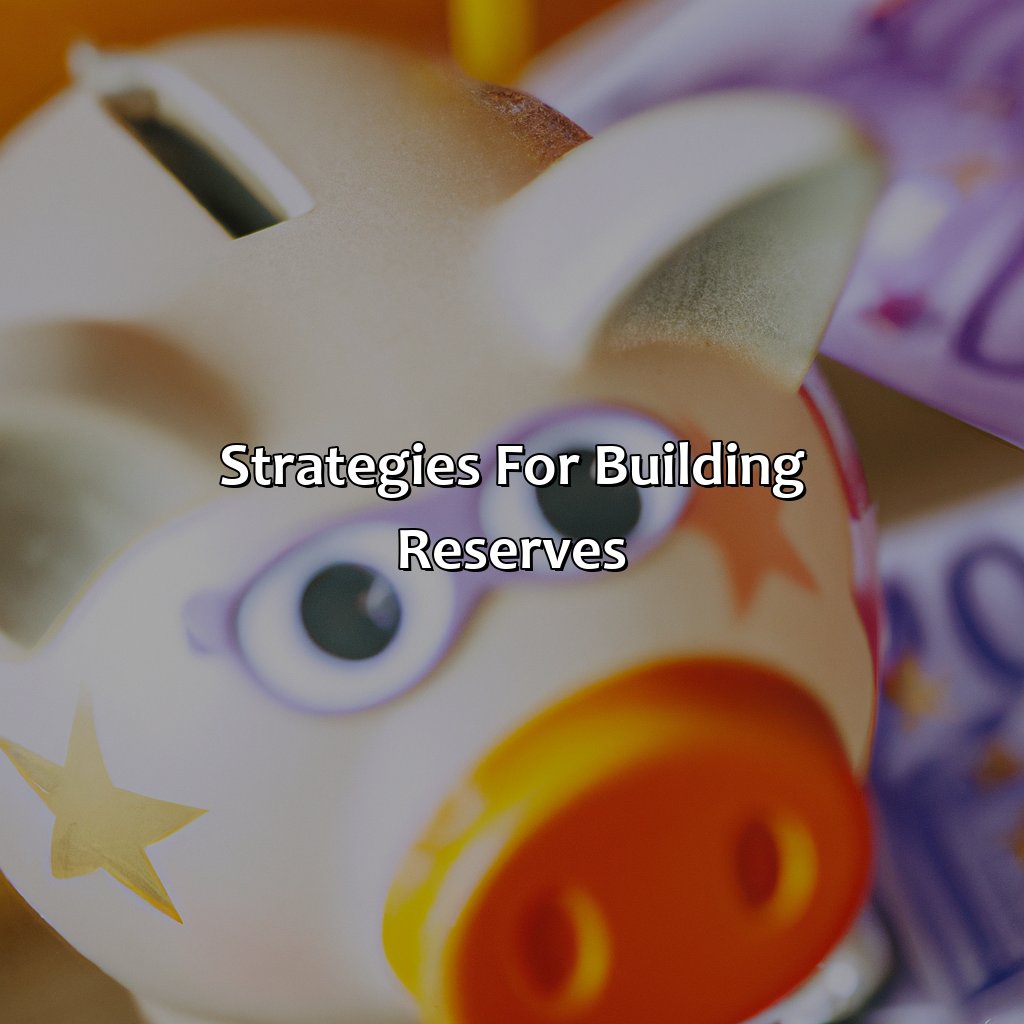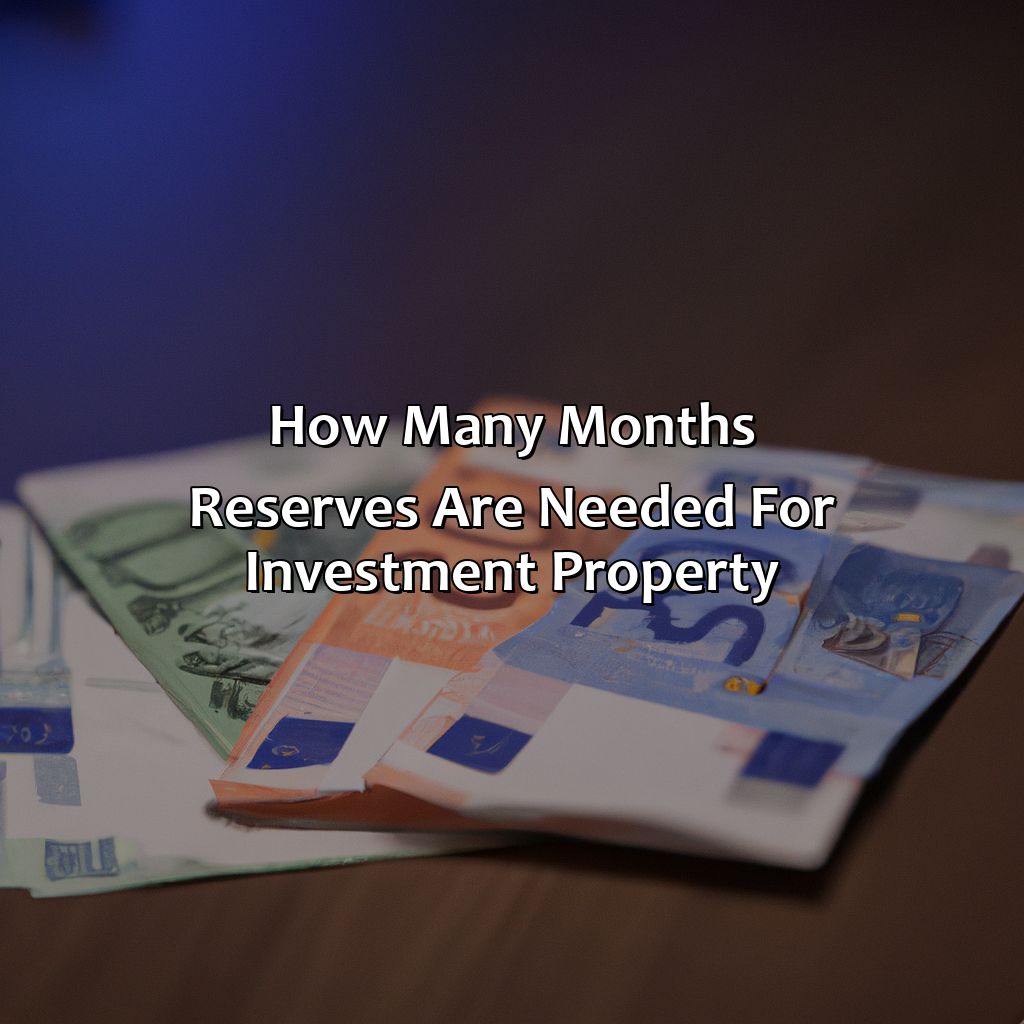How Many Months Reserves Are Needed For Investment Property?
Key Takeaway:
- Reserves are funds set aside by property owners to cover unexpected expenses or periods of vacancy. The recommended number of months reserves for investment property is typically six months.
- Holding reserves is essential for investment property owners and protects them from unforeseen expenses, such as repairs, maintenance, or tenant turnover. Having enough reserves also gives investors peace of mind and confidence in their ability to manage their properties successfully.
- The factors affecting reserve requirements include local market conditions, property type, age, and condition, and the investor’s risk tolerance. Experienced investors may require lower reserves, while newer investors may need to hold higher reserves to account for potential losses or unexpected expenses.
Are you curious about how many months of reserves you’ll need to own an investment property? Whether you’re a seasoned investor or just getting started, understanding the financial aspects of owning a rental property is essential. Learn here how to calculate your reserves so you can be prepared for success.
Number of months reserves needed for investment property
Ensuring a safe investment in property is vital. To do so, having an emergency fund or reserves is key. To calculate how many months’ reserves you need, let’s look at some factors. This article will explain reserves, why they are important, and what affects their requirements.

Image credits: retiregenz.com by David Woodhock
Definition of reserves
The required amount of funds that a real estate investor should keep aside, in addition to their down payment and closing costs, is commonly referred to as reserves. Reserves serve as a financial cushion that can be used for unforeseen circumstances such as property repairs or vacancies.
It is recommended to have at least six months of reserves on-hand while investing in a property. However, this may vary depending on the lender’s requirements, the specific market conditions and the investor’s personal risk tolerance. Reserves are typically calculated based on the monthly mortgage payment for the investment property and any associated maintenance or homeowners’ association fees.
Investors must take into consideration the type of property they are investing in- long-term rentals require more reserves compared to short-term vacation rentals. In addition, having a higher credit score and providing proof of income can help lower the required reserve amount.
To ensure a successful investment experience, it is essential for investors to start building their reserve fund as early as possible and regularly monitor their spending habits. This way they will be prepared for any unanticipated setbacks, contributing towards overall financial success in real estate investment.
Having reserves for your investment property is like carrying an umbrella on a sunny day – it might not seem necessary, but when the storm hits, you’ll be grateful you did.
Importance of having reserves
Having sufficient reserves is crucial when investing in a property. Adequate reserves protect investors from unforeseen expenses, such as repairs or vacancies, preventing them from being unable to meet mortgage payments. In addition, having proper reserves builds financial stability and long-term investment success.
It is recommended to have at least six months of mortgage payments readily available in reserves for each investment property. This amount may vary based on the property’s location, condition and type. For example, luxury properties may require higher reserves compared to standard rental properties due to the operating costs and amenities.
Investors must also consider factors like tenant turnover rate and rental income volatility when calculating necessary reserve amounts. Property owners who rely solely on rental income without backup savings may face severe financial losses if multiple tenants fail to pay on time or damage their properties.
Successful investments are built on sustainable practices, including adequate reserve amounts that ensure they can weather unpredictable market changes. By having appropriate reserves in place, investors can protect their own finances and secure long-term returns on their investments.
Don’t risk losing your investment by failing to set aside sufficient reserves. Be proactive in building an emergency fund for your investment property that ensures you stay ahead of unexpected costs and potentially costly expenses. “A penny saved is a penny earned”, unless you’re investing in property, then it’s more like hundreds of thousands of dollars saved in reserve.
Factors affecting reserve requirements
One key determinant of the number of months reserves required for an investment property is the type of property in question. Different types of properties have varying reserve requirements, depending on their level of potential risk. Another factor is the location of the investment property as it will affect the vacancy rates, rental income, and market trends that might eventually limit cash flow.
Investors’ personal financial standing also influences reserve requirements. Personal savings, sources of income, credit score, repayment history are all considerations when determining necessary reserves. The cost profile of owning an investment property (maintenance costs, mortgage payments, taxes) should also be considered.
Overall, numerous factors determine appropriate reserve levels for each investor or organization based on their situation’s unique complexities. One autonomous variable worth mentioning that affects the amount of reserve a landlord requires would be insurance policies down payment; the larger payment puts less strain on landlords who have lived through various economic collapses.
One notable example illustrating this fact pertains to a real estate firm located in California which had acquired an established residential condominium development with 11 units overseen by only one owner’s association. The company sought loans from two banks but received no approvals since their financial threshold was not met at that point.
Before you dive into calculating your reserve requirements, just remember one thing – Math never was and never will be your friend.
How to calculate reserve requirements
Calculating the reserve needed for your investment property? Understand the expenses first. Check out ‘How to calculate reserve requirements.’ It’s got info about:
- Operating expenses
- Capex and repairs
- Vacancy rate
- Turnover costs
Use this info to figure out how much reserve you need to cover any unexpected expenses.

Image credits: retiregenz.com by Yuval Woodhock
Operating expenses
Expenses incurred while operating an investment property include the cost of repairs, maintenance, utilities, insurance and property management. These expenses are not limited to the rental income alone but continue to mount up over time.
It is important to keep track of these expenses as they can significantly impact the return on investment (ROI). Reducing operating costs can lead to better ROI or profitability since it increases cash-flow generated by rent.
In addition to regular expenses, unscheduled or emergency repairs can arise at any given time. Budgeting for a buffer amount set aside specifically for such cases enables quick repair services that prevent further damage and ultimately save long term costs.
Capex and repairs, because owning an investment property is just like being in a long-term relationship- it requires constant maintenance and the occasional expensive gift.
Capex and repairs
Investment properties require ongoing maintenance, which involves Capex (capital expenditure) and repairs. The cost can vary depending on the age, condition, location and tenants of the property. Budgeting for these expenses is essential to avoid financial strain in the future.
To calculate the reserve requirements for Capex and repairs, landlords should first conduct a thorough inspection of their property to determine its current condition. Using this information, they should estimate how much money they will need to set aside each month to cover unexpected expenses.
It is advisable to allocate 10% of the monthly rental income towards reserves. This amount can also depend on the type of investment property and geographic location. Landlords should ensure that reserves cover at least six months of expenses but striving for 12 months is an optimal approach.
In a similar scenario, a landlord was unable to rent out their investment property due to necessary repairs resulting in vacancy and loss of income. However, as they had saved enough through reserve funds accumulated over time, they were able to complete repairs promptly while avoiding any financial stress from this mishap.
Vacancy rate and turnover costs? More like vaca-don’t and turnover and run costs, am I right?
Vacancy rate and turnover costs
The costs associated with vacancies and tenant turnover can significantly impact the cash flow of an investment property. It is important to consider these expenses when calculating reserve requirements.
Below is a breakdown of potential costs to consider:
| Cost | Description |
|---|---|
| Vacancy Rate | The percentage of time a rental property is unoccupied. A higher vacancy rate means more lost income. |
| Turnover Costs | The fees or expenses related to preparing a vacant unit for new tenants, such as cleaning, repairs, and advertising costs. |
| Lost Rent | The amount of rent that would have been earned during the vacancy period. |
It is important to plan for these expenses accordingly when calculating reserve requirements in order to ensure that there is enough money set aside for potential vacancies and tenant turnover.
In addition to these costs, unexpected repairs and maintenance should also be factored into reserve calculations.
According to a 2020 study by Roofstock, investors should aim to set aside at least six months worth of mortgage payments as reserves for each rental property they own. (Source: “Roofstock’s Quarterly Market Review Q2 2020”)
Building up reserves is like storing snacks for a road trip – always better to have too much than not enough, and you never know when you’ll hit a financial pothole.
Strategies for building reserves
Budget and save to build reserves for investment property. Increase cash flow to have extra earnings. Make strategic investments and upgrade your property. These habits ensure you have the money to pay expenses. Avoid potential problems. Keep your investment property running smoothly.

Image credits: retiregenz.com by Harry Woodhock
Budgeting and saving
The art of managing money is crucial for owning an investment property successfully. Executing Budgeting and saving strategies are vital to personalize this art form, as it varies with every individual’s situation. Understanding the amount required for reserves is the first step in budget planning.
To ensure adequate financial stability, investors should maintain savings that cover their mortgage payments, insurance, taxes, and maintenance costs for a specific period. Achieving six to twelve months’ worth of expenses can be a reliable start. However, depending on the property type and location, this may vary considerably.
Investors must consider unique factors when determining a realistic reserve goal, such as tenant turnover rates or unexpected costs like major repairs or natural calamities. By evaluating personal circumstances like income consistency or alternative sources of liquidity at hand meticulously, one can set achievable saving targets.
A practical idea to accumulate funds includes automating monthly deposits into a separate account while also minimizing non-essential expenses simultaneously. This disciplined approach not only helps in building reserves but also reduces stress levels during inevitable emergencies that require immediate financing.
In summary, having a sufficient reserve fund benefits landlords by providing monetary support when dealing with unforeseen occurrences and improving overall financial stability while avoiding any prolonged negative impact on rental properties’ cash flows.
Want to increase your cash flow? Just tell your tenants to pay with Monopoly money.
Increasing cash flow
Enhancing Revenue for Investment Property
Optimizing returns from investment properties is crucial, and increasing cash flow is a fundamental aspect of it. Adopting various strategies like improving rent prices, optimizing operational maintenance cost, judiciously investing in upscaling the property can significantly enhance revenue.
Maximizing rent prices can increase your net operating income (NOI) and positively contribute to cash flow, provided they remain competitive in the local market. Reducing vacancies and turnover rates by preserving good tenant relationships is equally essential. Effective property management with high tenant satisfaction can discourage tenants from vacating or defaulting on rental payments.
Optimizing operational expenses also helps enhance cash flow. Applying economies of scale to reduce variable costs or hiring competent contractors for repairs and maintenance can help cut down on recurring costs. Investing only where necessary but smartly up-scaling the property helps ensure long-term capital appreciation while bringing you short-term earnings through better rent prices.
Incorporating these tactics not only increases your immediate revenue but also builds a strong foundation for sustainable business growth. These strategies deem more worthy when real estate markets are uncertain, stressing higher yields in an otherwise flat rental market scenario.
When it comes to property upgrades, remember: a fresh coat of paint can go a long way, but a swimming pool in the living room may be pushing it.
Strategic investments and property upgrades
As a property investor, making strategic investments and upgrading your property can significantly increase its value. These upgrades could include anything from updating the kitchen to improving insulation. By doing so, you not only enhance the aesthetic appeal of the property but also ensure that it meets current building codes and regulations. This translates into higher rental income and resale values.
Not only do upgrades make sound financial sense, but they also make your property more attractive to potential buyers or tenants. So when planning your next investment project, consider taking the extra step in upgrading it to maximize its potential return on investment.
It’s important to note that while these upgrades are valuable, it’s essential to maintain sufficient reserves for emergencies that may arise. Typically, experts recommend keeping at least three months’ worth of operating expenses in reserves.
Take Jin Lee as an example. He invested in a rental property and spent over $20,000 on upgrades. His investment paid off as he was able to rent out his property for several hundred dollars more than similar properties in the area. However, shortly after renting out the property, he faced an unexpected plumbing issue that required costly repairs and depleted most of his reserves. It is always better to be safe than sorry with adequate reserve funding for such contingencies!
Some Facts About How Many Months Reserves Are Needed For Investment Property:
- ✅ Lenders typically require 6-12 months of reserves for investment property loans. (Source: The Balance)
- ✅ The amount of reserves needed may vary depending on factors such as the borrower’s credit score and the property’s location and condition. (Source: Trulia)
- ✅ Reserves may be in the form of cash, savings, stocks, or other liquid assets. (Source: Zacks)
- ✅ Having a larger amount of reserves can increase the likelihood of loan approval and may lead to better loan terms. (Source: Investopedia)
- ✅ In addition to reserves, lenders may also require a down payment of at least 20% for investment property loans. (Source: Quicken Loans)
FAQs about How Many Months Reserves Are Needed For Investment Property?
What are months reserves and why are they needed for investment property?
Months reserves refer to the amount of cash reserves an investor needs to have in their account to cover mortgage payments, property taxes, insurance, and maintenance expenses for a certain period of time. Lenders require these reserves to ensure that an investor has enough funds to cover unforeseen expenses and continue making mortgage payments, even if the property is vacant or rental income is disrupted.
How many months reserves are typically required for investment property?
The number of months reserves required for investment property typically varies depending on the lender, loan type, and property type. Conventional lenders usually require 6-12 months of reserves for investment property, while some government-backed loans may require up to 24 months reserves. The exact amount of reserve requirements can be found in the loan agreement.
What assets are considered months reserves for investment property?
The assets that lenders consider as months reserves for investment property can include cash, stocks, bonds, mutual funds, retirement accounts, and equity in other properties. The exact list of acceptable assets can vary by lender and loan program.
Can I use rental income as months reserves for investment property?
Most lenders do not allow rental income to be used as months reserves for investment property because it can be unpredictable and irregular. Instead, they require investors to have cash reserves in their accounts to cover unexpected expenses and mortgage payments.
Do I need to have separate months reserves for each investment property?
Yes, most lenders require investors to have separate months reserves for each investment property they own. This ensures that investors have enough funds to cover expenses and mortgage payments for each property, even if one property experiences rental income disruptions or unexpected expenses.
Can I use a gift or loan from someone else as months reserves for investment property?
It depends on the lender and loan program. Some lenders may allow investors to use a gift or loan from a family member or friend as months reserves for investment property, as long as it is documented and meets certain requirements. However, most lenders prefer investors to have their own cash reserves in their accounts, rather than relying on outside sources.


